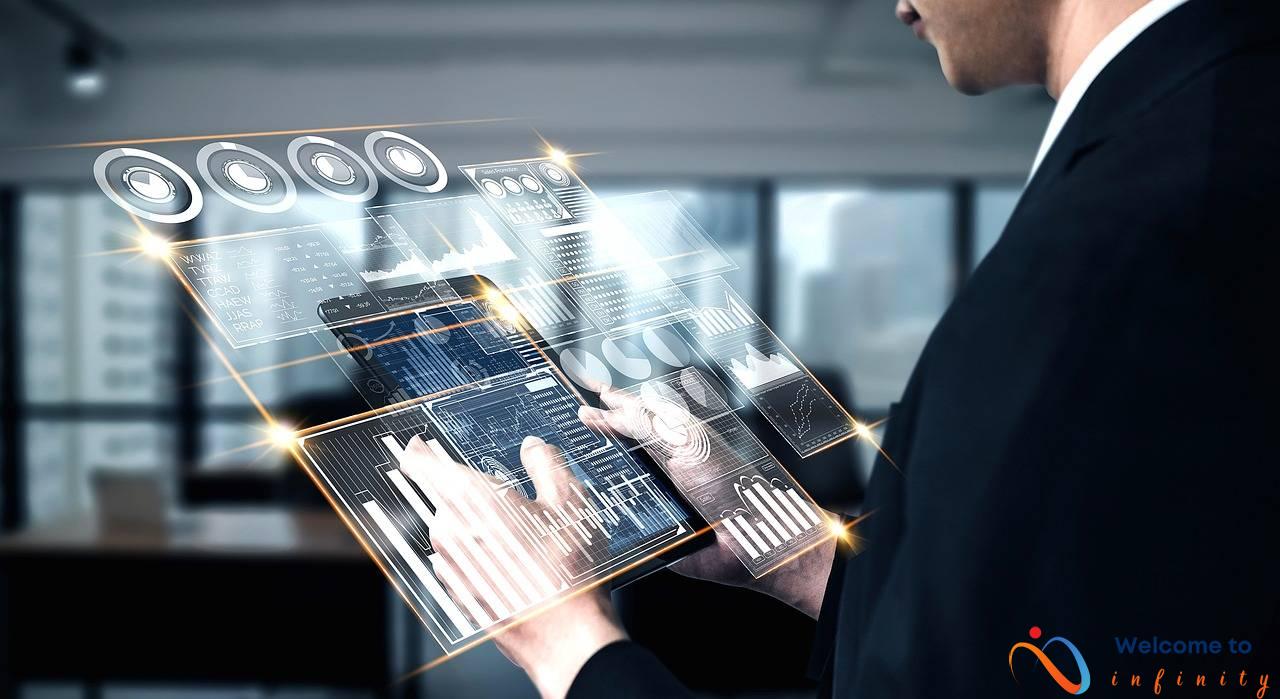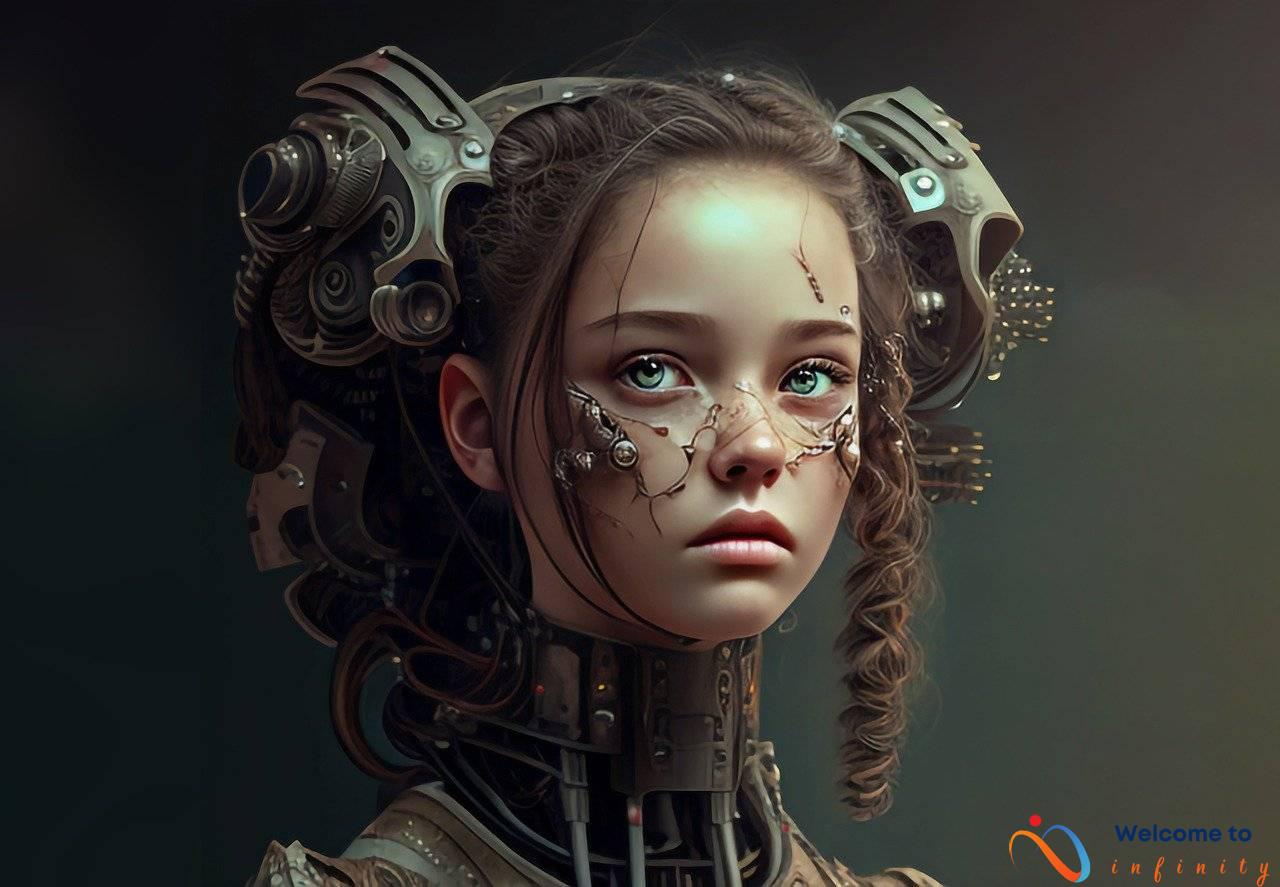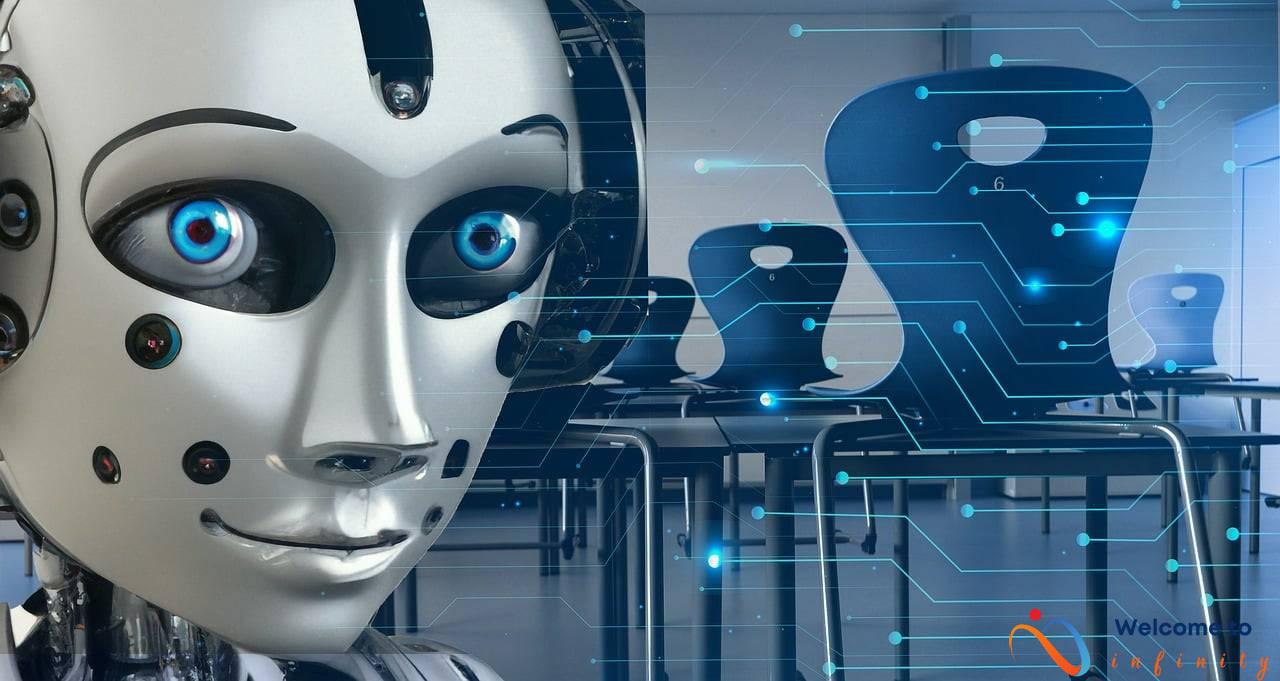Artificial intelligence (AI) is advancing rapidly, and we can expect it to play a significant role in shaping the future of technology. With AI-powered solutions simplifying complex tasks and reducing human effort, businesses are leveraging the power of AI to maximize efficiency.
The healthcare industry is also starting to embrace AI-enabled technology, offering real-time solutions and precision medicine. AI will enable personalized healthcare, predicting diseases earlier and curing them with personalized medication and treatment options. Smart devices with AI capability will also assist healthcare professionals by reducing the chances of human error while tracking and monitoring patient conditions in real-time.
In the banking industry, AI will be used to enhance customer experience, minimize security threats, and streamline financial transactions. Chatbots and virtual assistants will be used to solve customer complaints and queries, making the banking process more efficient. Moreover, AI will enable automation of trading by detecting market trends and trading decisions, making the investment process more agile and precise.
AI-enabled education is another sector that is set to benefit from the advancements in AI technology. With personalized coaching and interactive learning experiences, AI will revolutionize education by engaging students and making personalized learning more prevalent. Adaptive learning based on the student's capability, and AI-enabled smart teaching tools, will make the future of education more flexible.
AI will also play a crucial role in detecting and countering advanced cybersecurity threats, as cybersecurity continues to be a significant concern for businesses and individuals worldwide. AI systems will be used to identify and detect cyber threats that even the most trained human eye may miss, as well as being utilized for fraud detection in e-commerce sites and financial transactions.
As AI automation continues to grow, there will be a significant shift in employment trends, leading to new types of jobs and skill sets. Collaborative robots with AI capability will work alongside humans, increasing productivity, safety, and innovation. Reskilling the workforce with technical abilities and creativity to fit the future demands of work will be essential in ensuring a smooth transition into the future of employment.
AI in Business
Artificial intelligence is set to revolutionize the way businesses operate. AI is already helping to simplify complex tasks, reducing human effort to maximize efficiency. Going forward, AI is expected to take on more roles in business operations.
One of the essential roles AI is expected to play in business is automating tasks that were previously performed by humans. This will reduce the chance of human error while also freeing up valuable time for employees to focus on more critical tasks. In industries such as manufacturing, for instance, AI can be used to optimize production processes, reducing downtime and improving output.
The implementation of AI in customer service is another area of business where significant changes are expected. AI chatbots and virtual assistants are already being used to answer customer queries and resolve complaints. Going forward, these algorithms are expected to become more advanced, more intuitive, and more effective at delivering quality customer service.
Overall, AI will continue to revolutionize the way businesses operate, as it enables companies to reduce expenses, improve efficiency, and offer better customer service. However, companies must take the necessary measures to prepare for the integration of AI into their operations, including reskilling their workforce and investing in the infrastructure needed to adopt new technologies.
AI for Healthcare
As the field of healthcare technology is rapidly expanding, the integration of AI technology in healthcare is becoming more prevalent. In the near future, AI-enabled healthcare industry is likely to flourish, offering real-time solutions and precision medicine.
One of the most significant benefits of AI in healthcare is the enablement of personalized healthcare, predicting diseases earlier, and curing them with personalized medication and treatment options. AI algorithms are proficient in detecting patterns in medical history, lifestyle choices and genetic traits to make highly accurate predictions about an individual's predisposition to certain diseases.
Moreover, AI will also facilitate smart devices, reducing the chances of human error while tracking and monitoring patient conditions in real-time. Real-time monitoring can help identify minor changes in the body that could result in medical emergencies. AI can analyze the symptoms and alert healthcare professionals to take quick action to prevent the emergency from happening.
The healthcare industry also generates a vast amount of data that needs to be processed, analyzed and interpreted to make informed clinical decisions. This is where popular AI applications such as machine learning algorithms, natural language processing and predictive analytics can significantly improve the accuracy and productivity of clinical decision-making.
In conclusion, AI technology will help the healthcare industry offer more precise and personalized treatment to patients. It will also help healthcare professionals focus on more complex tasks while reducing human effort and minimizing human error. Therefore, the healthcare industry will be more efficient, effective, and life-saving than ever before.
Personalized Healthcare
Personalized healthcare is one of the most significant advantages of AI in the medical industry. With the help of AI-enabled machines, doctors can diagnose and treat diseases with more precision and accuracy than ever before. AI will also enable predicting diseases earlier, identifying patterns and symptoms specific to individuals, and detecting diseases before they develop.
The most significant advantage of personalized healthcare is the ability to customize treatment options and medication according to the patient's needs. AI will enable medical practitioners to choose the best treatment approach for each patient, tailoring medical decisions according to individual factors such as genetics, age, lifestyle, and medical history.
AI will also facilitate the development of personalized medicines, optimizing dosage and treatment frequency to suit the specific needs of individual patients. With AI-enabled 3D printing machines, it is even possible to create medication tailored to the unique physical attributes of each patient, improving the drug's effectiveness and minimizing side-effects.
Moreover, AI will enable personalized medical records, allowing doctors and patients to track their medical history, diagnosis, and treatment progress with more accuracy and transparency. AI will make it easier to gather, analyze, and interpret medical data, providing insights to doctors that were previously impossible to access.
The personalized healthcare industry is expected to grow rapidly in the coming years, revolutionizing the way we approach healthcare. With the help of AI, medical practitioners will be able to provide patients with more personalized care, resulting in improved health outcomes, reduced medical costs, and a better quality of life.
Smart Devices in Healthcare
=Smart devices integrated with AI technology are expected to revolutionize the healthcare industry. This advancement will significantly reduce the chances of human error while tracking and monitoring patient condition in real-time, improving precision medicine. Smart devices such as wearables and sensors will collect data, monitor patient health and vital signs, and store the data in the cloud. AI-powered analytics will help medical professionals analyze, interpret and act upon the data, making healthcare decisions more data-driven and efficient.
Healthcare providers can use the data collected from patients to develop predictive models that detect diseases early, monitor chronic conditions, and manage medication. These predictive models will help in accurately identifying the changes in patients' conditions, enabling healthcare providers to provide timely care and prevent complications.
Furthermore, AI-enabled smart devices can reduce healthcare costs, provide real-time monitoring of patients' conditions, and alert healthcare providers of any potential issues. This technology will improve patient engagement and experience, enabling patients to self-manage their conditions more efficiently.
Overall, the combination of smart devices and AI technology will revolutionize the healthcare industry, offering personalized precision medicine, predicting diseases earlier, and improving the quality of healthcare services. As the technology continues to advance, it is expected to lead to a healthier and more sustainable future.
AI in Banking
The banking industry is shifting towards a digital transformation, and AI is playing a significant role in this change. With the help of AI, banks will improve customer experience, minimize security threats, and streamline financial transactions. AI-enabled chatbots and virtual assistants will enable banks to offer 24/7 customer support, solving customer complaints and queries faster than ever before. These chatbots and virtual assistants will also keep track of customer data and provide personalized solutions based on their needs.
Furthermore, AI will enhance security measures in the banking industry by implementing biometric authentication, fraud detection, and cyber threat prevention. The use of AI-enabled fraud detection systems will ensure the safety of financial transactions by monitoring user behavior and detecting any suspicious activities in real-time. AI will also automate trading, detect market trends, and make trading decisions, making the investment process more agile and precise.
Overall, the integration of AI in the banking industry will revolutionize the way financial institutions operate and provide services to customers. Not only will it provide more personalized solutions and enhanced security measures, but it will also streamline financial transactions, making it more accessible for individuals and businesses alike.
Chatbots and Virtual Assistants
The world of banking is evolving rapidly, and AI is playing a significant role in it. With the help of chatbots and virtual assistants, banks can provide 24/7 customer service, ensuring that the customer's grievances are addressed promptly. These intelligent chatbots can scan through existing customer data and offer relevant solutions to simple queries and complaints. Hence, reducing human effort and streamlining the banking process.
Moreover, the virtual assistants powered by AI will personalize the user experience by offering customized financial products and services recommendations based on their past financial behavior. Additionally, they would also help in reducing the time to resolve customer issues as they can operate around the clock and ensure the best service possible.
- Chatbots and virtual assistants will provide a faster and more personalized communication medium with banks
- Technological advancements in AI are allowing banks to offer a better customer experience through automation
- Chatbots will likely replace human customer service representatives in the future, reducing human resources cost
The advent of chatbots and virtual assistants in banks offers a unique opportunity for customers to receive prompt assistance without the inconvenience of stepping foot in a bank's physical location.
As AI continues to make its way into different industries, the banking sector should adopt it to remain competitive. The future of banking is all about maximizing customer satisfaction and experience, and AI-powered chatbots and virtual assistants will have a significant role in achieving this objective.
Automated Trading
The traditional approach to investing involves human decision-making, which is prone to bias. With the advancement of AI, automated trading is becoming increasingly popular in the investment industry. AI will enable automation of trading, detecting market trends, and making trading decisions based on data and algorithms instead of human intuition, making the investment process much more agile and precise.
AI systems can collect and analyze large amounts of data in real-time, detecting subtle changes in the market that humans may miss. By analyzing past trading data, AI models can make informed decisions on when to buy, hold, or sell stocks or other investment assets.
Automated trading can offer considerable benefits to investors, such as reducing transaction costs, minimizing human error, and increasing trading speed. With automated trading, investors can take advantage of market opportunities within seconds, around the clock, without the need for human intervention.
Apart from the benefits of automated trading, AI can also help investors manage portfolio risk. By analyzing market data, AI systems can suggest optimization techniques that reduce a portfolio's vulnerability to market fluctuations.
Overall, the application of AI in automated trading will revolutionize the investment industry, greatly enhancing efficiencies, reducing costs, and improving returns for investors.
AI in Education
The education sector is one area where the impact of AI is set to be felt the most. With AI, educators and institutions now have more powerful tools to engage students with personalized coaching and interactive learning experiences. The advancement in technology and big data analytics can be leveraged to track and measure student progress and learning outcomes.
AI-enabled education will shape the future of the education sector by providing adaptive learning mechanisms that focus on the student's capabilities and learning style. This will help personalize learning for individual students, improving their outcomes. AI can also facilitate smart content delivery, which enables customized content delivery for students of different levels, backgrounds, and geographies.
The use of AI in education can also help institutions streamline their processes and save time for both students and educators. For example, administrative tasks such as exam creation, grading, and reporting can be done more efficiently using AI, allowing educators to focus on their core responsibilities of teaching and mentoring.
Given the current global pandemic, AI-enabled virtual learning tools have become fundamental in keeping students engaged and informed. These tools can provide personalized coaching and virtual mentorship to students who cannot attend classes physically. Moreover, AI-powered virtual labs can simulate real-world experiences relevant to learners – for instance, science and engineering labs. These interactive simulations would provide students with the opportunity to practice their skills and learn from their mistakes before venturing into the actual field.
With the adoption of AI in the education sector, we can expect innovations that would make learning fun and accessible to many. For the education sector to keep up with the rapidly developing world of AI, educators, institutions, and all the relevant stakeholders must embrace and explore the different AI technologies to stay ahead.
Adaptive Learning
Adaptive learning is a teaching technique that is based on AI technology and focuses on providing personalized learning experiences to students. AI-enabled tools collect and analyze data on each student's learning patterns, preferences, and strengths to create a customized learning path, which is tailored to the individual's needs and abilities.
With adaptive learning, students can learn at their own pace, enabling them to absorb information more effectively. The technology also provides teachers with valuable insights into their students' learning patterns, allowing them to adjust their teaching methods and provide additional support as required.
Furthermore, AI-enabled adaptive learning systems offer more flexibility in terms of teaching styles, methods, and content delivery. They use a variety of learning materials, such as videos, interactive simulations, and customized quizzes, to keep students engaged and motivated.
The future of adaptive learning is exciting, as AI technology continues to evolve. In the coming years, we can expect to see more advanced systems that can analyze even more data in real-time, allowing for even more precise personalization and targeting of learning experiences.
Overall, the rise of adaptive learning is a positive development, as it allows us to deliver customized educational experiences that cater to the individual needs of each learner. As AI technology in education continues to advance, we can expect to see greater efficiency, engagement, and learning outcomes for students across the globe.
Smart Content Delivery
Smart Content Delivery
The future of education is set to be transformed with the help of AI-enabled smart teaching tools, paving the way for customized content delivery that caters to students of varying levels.
With AI, it is now possible to create digital classrooms that adapt to each student's learning style and preferences. This means that students can easily access relevant content, and teachers can create personalized lessons that suit each student's needs.
Moreover, the digital classroom allows students to learn at their own pace, ensuring that they have a full understanding of the topic before moving on to the next. The software can track each student's progress and offer custom-made exercises and lessons to further enhance their learning experience.
The AI-enabled education system is also designed to improve students' retention and engagement while reducing their cognitive load. This is achieved by providing personalized bite-sized content that the learners can quickly consume and absorb. This approach also offers immediate feedback, making it easier for students to track their progress and course-correct as necessary.
With smart content delivery, students can learn in a way that suits their specific learning style, making the education system more inclusive and efficient. The use of AI-enabled smart teaching tools is expected to transform the education sector, improving student outcomes and preparing them for the future workforce.
AI for Cybersecurity
As technology continues to advance, so do the threats to cybersecurity. This is where AI comes in to help with its ability to detect and counter advanced cybersecurity threats. With AI-enabled threat detection systems, cyber threats that were once difficult to identify and prevent can now be easily detected and countered before they can cause any harm.
AI is also revolutionizing fraud detection in the financial and e-commerce sectors. With AI-enabled fraud detection systems in place, fraudulent activities can be detected in real-time, preventing financial loss.
Cybersecurity threats will continue to evolve and become more sophisticated, making AI an essential tool in keeping our information and infrastructure safe. As a result, we can expect to see an increase in the use of AI in the cybersecurity industry in the coming years.
AI-Enabled Threat Detection
Technology has given rise to a new era of cyber threats, and traditional cybersecurity measures are no longer enough. These days, the most sophisticated attacks can easily go undetected despite human supervision, making the threat detection much more difficult. AI has emerged as an essential tool in this field as it can detect dangers that even the most skilled human eye may miss.
AI-enabled threat detection systems analyze vast amounts of data in real-time with machine learning algorithms, detecting patterns and abnormalities that may indicate potential threats. Unlike humans, AI doesn't suffer from fatigue, distraction, or biases, enabling it to identify threats that may otherwise go unnoticed. Additionally, AI can recognize emerging threats and predict future attacks, allowing security experts to take preemptive measures before the damage is done.
AI-enabled threat detection will significantly enhance cybersecurity defenses, offering real-time protection and early-warning systems to potential breaches. As the technology advances, AI can distinguish between genuine threats and the harmless ones, thereby reducing false positives and minimizing human intervention. By employing AI in cyber defense, the security industry can transform their approach, making systems that learn by themselves and adapt to emerging threats, making the internet a safer place.
AI in Fraud Detection
Financial frauds are a significant concern for both customers and businesses across the globe. Fraudulent activities like identity theft, credit card fraud, and money laundering can cause significant financial losses. AI-enabled fraud detection is gaining immense popularity because of its real-time monitoring and prevention of any fraudulent activities.
AI systems use advanced algorithms to detect any suspicious behavior in financial transactions or e-commerce sites and immediately alert the authorities. These systems can analyze vast amounts of data, detect patterns, and identify anomalies that might indicate fraudulent activities.
With the help of machine learning algorithms, AI-enabled fraud detection systems can learn from past fraud cases, automatically improving their ability to detect fraud. These systems work continuously, detecting any fraudulent activity occurring round the clock.
Moreover, AI-powered fraud detection systems can provide additional insights that can help financial institutions and e-commerce sites understand customer behavior better. They can identify the general patterns of fraudulent activities that can help in taking proactive measures to stop the fraudsters before they cause any more damage.
In conclusion, AI-powered fraud detection systems offer an efficient and effective way of detecting fraudulent activities in financial transactions and e-commerce sites. These systems are becoming increasingly popular and will continue to be a vital tool in the fight against financial frauds.
AI and Employment
AI automation is transforming the job market, and soon, we will see significant shifts in employment trends. While automation will replace some repetitive, routine jobs, it will also create new types of jobs and skill sets. Let's take a closer look at how AI will change the employment landscape.
- Collaborative Robots: AI-enabled collaborative robots will work alongside humans to complete tasks more efficiently and increase productivity. These robots can perform repetitive and dangerous tasks and help reduce workplace injuries.
- Reskilling the Workforce: As the job market evolves, there will be a need for employees to adapt and reskill with technical abilities and creativity. These skills will be required to fit future job demands, and employees who invest in their skills will have an advantage in the job market.
Furthermore, AI technology will create new job opportunities in fields such as AI engineering, data analysis, and cybersecurity, where skilled workers are in high demand. The workforce must be prepared to adapt to these changes and acquire new skills to ensure longevity in the job market.
Overall, AI automation will create a more significant shift in employment trends, and the workforce must be ready to adapt and embrace these changes. By doing so, we can improve productivity, efficiency and create new job opportunities for the future.
Collaborative Robots
One of the most innovative applications of AI is the introduction of collaborative robots, or cobots, in the workforce. Unlike traditional robots, cobots are designed to work safely alongside human workers. Cobots integrate advanced sensors and intelligent algorithms to detect human presence and movements, reducing the risk of accidents in the workplace.
These robots can perform a wide range of tasks, from assembling small parts to heavy-lifting, allowing for increased productivity and efficiency. The integration of AI in cobots also enables them to learn from human workers, improving their performance and precision over time.
- Cobots can assist in hazardous jobs, reducing the danger of workplace accidents and injuries.
- The use of cobots can also increase the accuracy and speed of routine tasks, allowing humans to focus on more complex responsibilities.
- Collaborative robots can also reduce costs for businesses by lowering the need for specialized training, increasing productivity and efficiency, and decreasing the risk of errors and rework.
The integration of AI in collaborative robots is expected to revolutionize the manufacturing industry, with robots performing repetitive tasks alongside human workers, leading to increased efficiency, safety, and innovation. The collaboration between humans and robots is expected to create a more flexible and adaptive workforce, changing the way we perceive the role of automation in the workplace.
Reskilling the Workforce
In the future, AI automation will lead to a significant shift in employment trends, leading to new types of jobs and skill sets. As automation replaces repetitive, routine jobs, such as data entry and assembly line work, there will be a need to reskill the workforce with technical abilities and creativity to fit future job demands.
This reskilling process will involve teaching employees new skills such as data analysis, programming, design thinking, and more. Employers will have to invest in employee education and training programs to help their workforce prepare for the rapidly changing job market.
One of the main challenges of reskilling the workforce will be ensuring that older employees are not left behind in the process. This will involve developing training programs that cater to the needs of all employees, regardless of age or experience level.
However, with the rise of AI-enabled collaborative robots, there is also significant potential for humans and machines to work together in new and innovative ways. Collaborative robots can work alongside humans, taking on repetitive or dangerous tasks, and freeing up employees to focus on more complex and creative work.
Overall, the need for reskilling the workforce is a significant challenge that businesses and organizations will have to face in the coming years. But with proper planning, investment, and education, the workforce can adapt to the changing job market and thrive in the age of AI.










